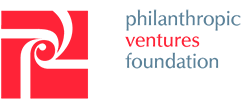Updates from the Time + Tide Foundation

During the event, the girls performed poems to an audience of over 200 residents, clearly describing the challenges girls face during their periods and highlighting the importance of societal acceptance of this physiological process. They also explained the connection between practising good menstrual hygiene and maintaining positive self-esteem. In preparation for the event, the girls had several sessions on reproductive health with a focus on the menstrual cycle, its phases and the various types of sanitary products available, such as reusable pads, period pants, menstrual cups, and disposable pads. In many remote areas of Zambia, there are still taboos and myths associated with menstruation, including girls and women labelled as “unclean” and potentially harmful to others. By creating awareness about both the biology of menstruation and the harm of stigmas, we enable safer and more comfortable learning environments for girls in schools and greater acceptance in their homes and communities.
Following the expansion of our Home-based Education Programme to the nearby community of Chiawa, we held an initial workshop on disability management to train our new caregivers and parents of recently enrolled children.
The course was also attended by some of the parents and caregivers from Mugurameno Village in order to facilitate peer-to-peer learning, share stories and experiences and reinforce key concepts. The workshop was led by one of our primary facilitators, Mr. Robam Mwaba, former Director for Zambia Institute for Special Education, and was attended by 16 caregivers and 12 parents, of whom 5 caregivers and 5 parents were from Chiawa. He explained the importance of early identification of conditions such as cerebral palsy and autism spectrum disorder and appropriate interventions to ensure minimal developmental delay. Early identification enables families to access appropriate support services, facilitating better coping mechanisms and reducing parental stress. Mr. Mwaba also described the utility of individual education plans for children, which include specification of a child’s focal growth areas and targets as well as the recommended teaching methods and materials to meet those targets.

We integrated numeracy lessons into our Community Women Programme this quarter as a response to the realisation that a number of women in our pilot group lacked fundamental arithmetic skills.
Foundational numeracy is crucial for comprehending concepts in financial literacy and business management. Concurrently, we facilitate English literacy lessons to further enhance the women’s readiness for the upcoming training courses. Moreover, English is the official language in Zambia, and entrepreneurs who can speak and understand the language are better positioned for economic advancement. Upon successful completion of the financial literacy and business management courses, the women will draft business proposals with mentorship from a financial literacy and business management consultant.
Among our dedicated beneficiaries is Gertrude, a 67-year-old woman from Munde Village. Having left school in Grade 6 due to financial constraints, participating in our programme has granted her a second chance at education, in a drastically different phase of her life. Her commitment to learning has been outstanding, evidenced by her notable improvements in arithmetic and English communication skills. Gertrude was unique in her cohort because she joined already literate in English, and through the programme she has learned new vocabulary and built confidence in both her spoken and written English, with which she will be better able to engage diverse future customers. She plans to start a business selling groceries in her community of Liuwa, with the hope of expanding to the nearby town of Kalabo.






